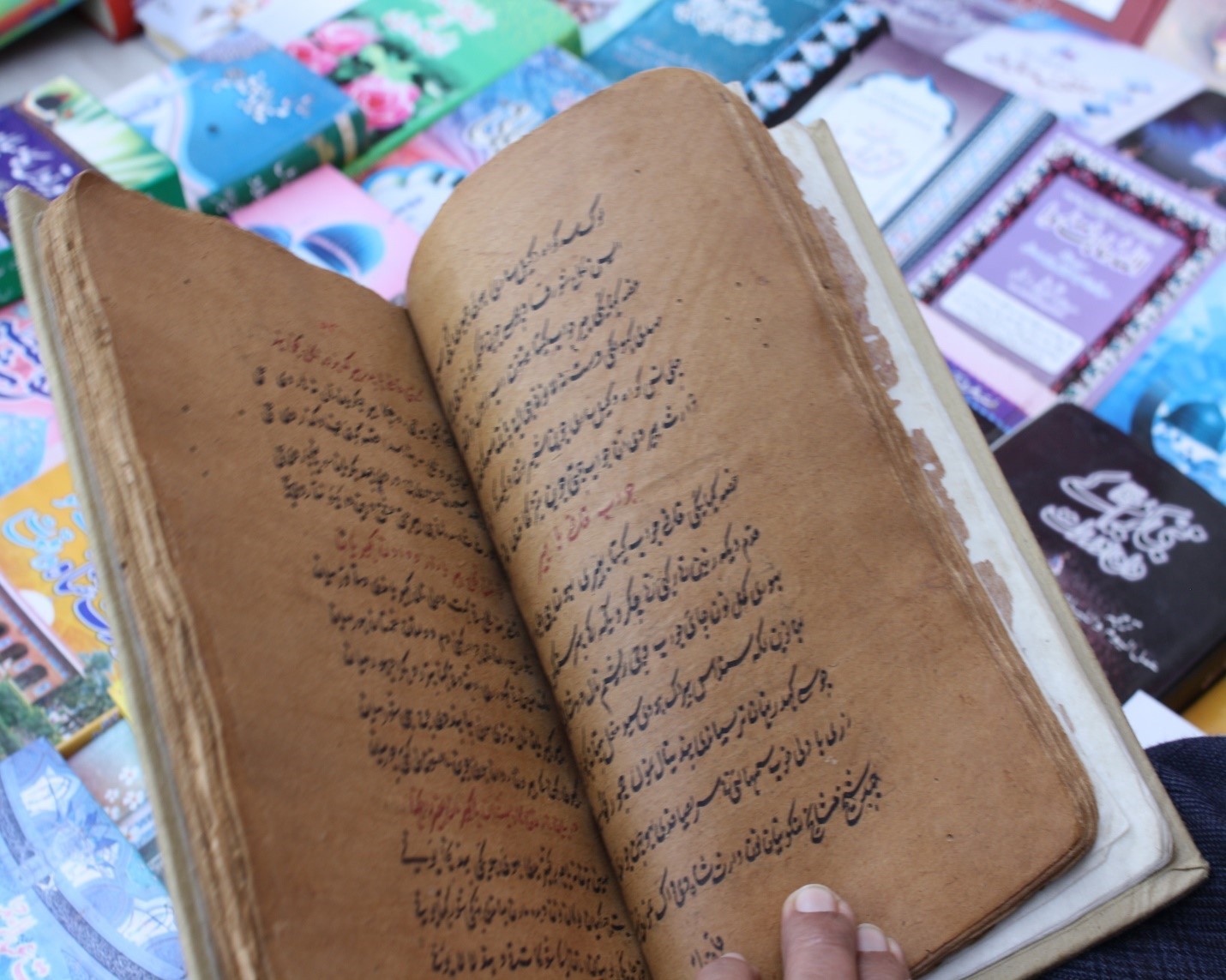
The Dhahan Prize Team comprising of two renowned Canadian Punjabi authors Harpreet Sekha and Sadhu Binning, Professor Raghbir Singh Sirjana, Chair of the Dhahan Prize Advisory Committee, Harinder K. Dhahan and Barj S. Dhahan was on a momentous tour of Punjab, Pakistan from February 26 to March 4, 2018. A special event was hosted by the arts and literary community of Lahore to celebrate Punjabi literature and the local writers with the Dhahan Prize team.
All five of the team members visited the Mazar (Shrine) of the two renowned Sufi poets Syed Waris Shah and Baba Bulleh Shah. At the Mazar (Shrine) of Waris Shah, Barj Dhahan was shown a 180 year old hand written copy of Heer (see Photo).
Waris Shah composed the legendary love tale of Heer and her lover Ranjha in 1766 in a small town called Malka Hans in West Punjab, present day Pakistan. Malka Hans is geographically positioned between two ancient cities, Harappa five thousand years old and Pakpattan more than a thousand years old.
Waris Shah immortalized the message of Sufi mysticism through his writing. Heer is an embodiment of universal love that resides in every soul. Heer is not just a narrative of romance, it portrays the unequalled female protagonist of the land of the five rivers, Punjab. Waris Shah could not ignore the troubled times and hypocrisy of the age and through his writing he exposed the corrupt, decadent, regressive religious and secular institutions serving the interests of the status quo. He confronted the eighteenth century social and intellectual discourse by recreating Heer and his poetry remains unparalleled in the history of Punjabi Literature.
“What Waris Shah wrote 250 years ago in a small village has stood the test of time. Rather it proved to be the best creative expression of Punjabi genius. The female character recreated by this supreme bard is one of most defiant female figures in the Punjabi literary history that seems even today far ahead of contemporary advocates of gender rights and equality. She embodies not just gender empowerment but also the eternal spirit of human emancipation”, Says Mushtaq Soofi, Punjabi Scholar and President of Punjabi Adabi Board, Lahore.
Waris Shah is considered the Shakespeare and Homer of Punjabi Literature and his Heer is one of the quintessential works of Punjabi literature. The verses and couplets of Heer today are recited by ordinary men and women. They are sung and danced to by amateurs and professionals alike with great passion and devotion. They are a treasure trove of Punjabi idioms and sayings and they continue to inspire new poetic expressions. The unique and sublime narrative of Heer Waris Shah draws crowds at cultural events and Sufi Shrines even today, where the performances of folk singers enchant listeners into a spiritual journey.
